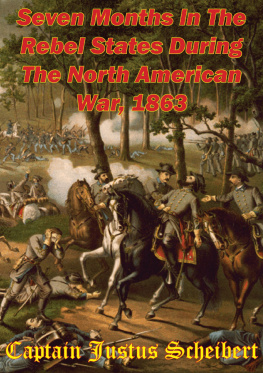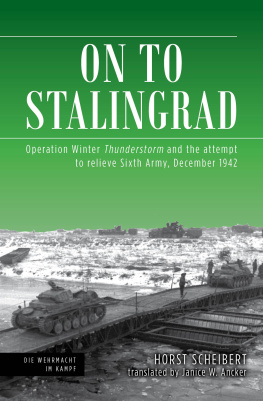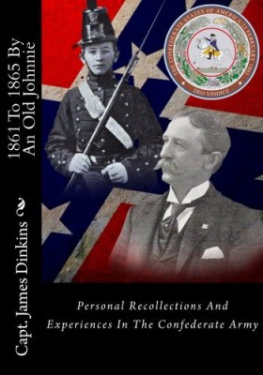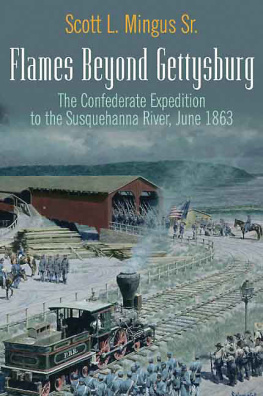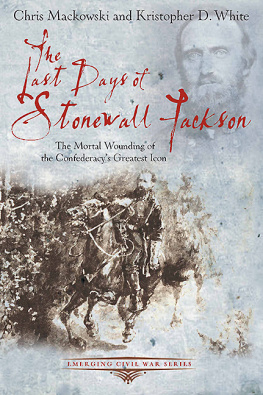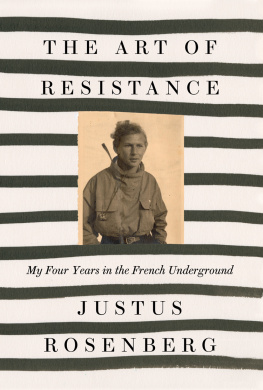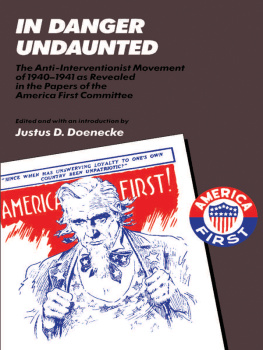This edition is published by PICKLE PARTNERS PUBLISHINGwww.picklepartnerspublishing.com
To join our mailing list for new titles or for issues with our books picklepublishing@gmail.com
Or on Facebook
Text originally published in 1958 under the same title.
Pickle Partners Publishing 2014, all rights reserved. No part of this publication may be reproduced, stored in a retrieval system or transmitted by any means, electrical, mechanical or otherwise without the written permission of the copyright holder.
Publishers Note
Although in most cases we have retained the Authors original spelling and grammar to authentically reproduce the work of the Author and the original intent of such material, some additional notes and clarifications have been added for the modern readers benefit.
We have also made every effort to include all maps and illustrations of the original edition the limitations of formatting do not allow of including larger maps, we will upload as many of these maps as possible.
Seven Months in the Southern States During the North-American War, 1863
By
CAPTAIN JUSTUS SCHEIBERT
Translated from the German by
JOSEPH C. HAYES
Edited with an Introduction by
Wm. STANLEY HOOLE
Introduction
MANY OF THE BOOKS written by foreigners who cast their lots with the Confederate States of America are well known and widely quoted, {1} but a few, especially those in non-English languages, have received comparatively scant recognition. For instance, Charles Frdric Girards Les Etats Confdrs dAmerique Visits en 1863 (Paris, 1864), recounting his experiences with both the military and civilian Confederacy, has not been translated. {2} Neither has Die grosse Reiterschlacht bei Brandy Station ... (Berlin, 1893), written by Heros von Borcke and Justus Scheibert, Prussian compatriots, despite the fact that Douglas Southall Freeman described it as the fullest study of the action of June 9, 1863. {3} But in several respects the most neglected writing is perhaps that of Captain Justus Scheibert, Jeb Stuarts fighting observer, whose three books (in addition to the collaboration mentioned above) have received precious little attention from historians. His Das Zusammenwirken der Armee and Marine ... 1861-63 (Rathenow, [1887]), for instance, a careful analysis of naval affairs along the Mississippi, has not been put into English. His Der Brgerkrieg in den nordamerikanischen Staaten ...(Berlin, 1874), a splendid account of Confederate infantry, cavalry, artillery, and engineer strategy, was promptly translated into French as La Guerre Civile aux tats-Unis dAmerique ... (Paris, 1876), but the volume has not yet been made available to English readers. Freeman has described this study as especially important for its statement of Lees theory of the function of the high command. {4} And Scheiberts Sieben Monate in den Rebellen-Staaten wahrend des nordamerikanischen Krieges 1868 (Stettin, 1868), containing vivid portrayals of the battles of Chancellorsville, Brandy Station, and Gettysburg, records of personal conversations with President Jefferson Davis, Generals Lee, Jackson, Beauregard, and Stuart and many observations on life in the Confederacy, has up to now been available in the original German onlyyet, nearly seventy years ago Charles Poindexter, distinguished historian and librarian, pronounced it a study marked with good sense and power of observation, one that well deserves translation as a valuable contribution to the history of the time. {5}
Captain Justus Scheibert, a prolific writer of military treatises, was born on May 16, 1831 in Stettin, Pomerania (now Szczecin, Poland), the oldest of eleven children. In 1849 he joined the Prussian Army. A year later he passed officer examinations and for a decade thereafter served at Glogau, Magdeburg, Silberberg, Neisse and other military posts. In January, 1863, as Captain Scheibert, he was ordered by Prince von Radziwill, chief of the Prussian Engineer Corps, to proceed at once to the North American war threatre as an observer. Already well known as an authority on fortifications, he was instructed especially to study the effect of rifled cannon fire on earth, masonry, and iron, and the operation of armor on land and at sea. {6}
Originally, Radziwill had planned to send Scheibert to the United States Army, but the Captain, a strong Southern sympathizer, believed that his mission could best be accomplished by attaching himself to the Confederacyand the Prussian high command agreed. {7}
Armed with letters of introduction from Confederate Agent James M. Mason to Secretary of War James A. Seddon, Captain Scheibert arrived in Charleston on March 15. He was warmly received by General P. G. T. Beauregard. Two weeks later, he went on to the headquarters of the Army of Northern Virginia beside the Rappahannock, where General Robert E. Lee extended him every courtesy.
Scheibert remained at Lees headquarters ten days, until April 19, during which time he became well acquainted with Generals Jeb Stuart and Stonewall Jackson and Major Charles S. Venable, one of Lees aides, visited the battlefield at Fredericksburg, observed Confederate infantry, artillery, and cavalry drills, and otherwise shared the austere yet oft-times pleasant camp life of his high-ranking hosts. Meantime, much to his delight, he met a distinguished fellow-countryman, Colonel Heros von Borcke, also of the Prussian Engineer Corps, who had been with Stuart for a year and was serving as his chief-of-staff. Upon Stuarts and Borckes urgent requests, Scheibert decided to visit Stuarts headquarters near Culpeper which, after a short trip to Richmond, he reached on April 21.
As a member of Stuarts staff, Scheibert served as Rittmeister that is, as sort of handyman, making maps, helping on bridge and breastwork constructions, carrying messages and otherwise making himself useful. And during the weeks that followed he endeared himself to all who knew himespecially the ladies in nearby Culpeper. As Borcke wrote later, Scheibert delighted them with his excellent piano-forte playing, to say nothing of the amusement they derived from his original practice with the idiom and pronunciation of the English language. {8} According to Lieutenant-Colonel William W. Blackford, Stuarts adjutant, Scheibert proved to be a most accomplished though somewhat eccentric gentleman to whom everyone became much attached. Awkward but ever jolly, he was a source of great amusement in the home, the camp, and in the field. {9} Commissioned an honorary captain in the Confederate cavalry, {10} he participated in the battles of Chancellorsville and Brandy Station and, at Lees request, accompanied the Army of Northern Virginia on its invasion of Pennsylvania.
Meantime, in addition to the Prussian Captain Scheibert, four other foreigners had joined the headquarters staff of the Southern armyFrank Vizetelly, artist and correspondent for the Illustrated London News; Lieutenant-Colonel Arthur J. Lyon Fremantle of the English Coldstream Guards; Francis C. Lawley, correspondent for the London Times; and Captain Fitzgerald Ross of the Imperial Austrian Hussars. Each found a cordial reception at Lees and Stuarts headquarters, as had Scheibert. (Regrettably, the sixth European, Heros von Borcke, could not be with them. {11} He had been wounded a few days before at the Battle of Aldie.) {12}






